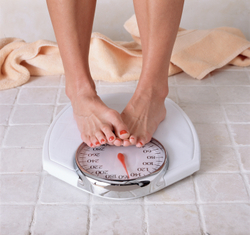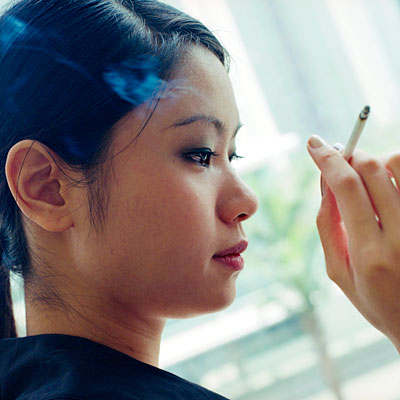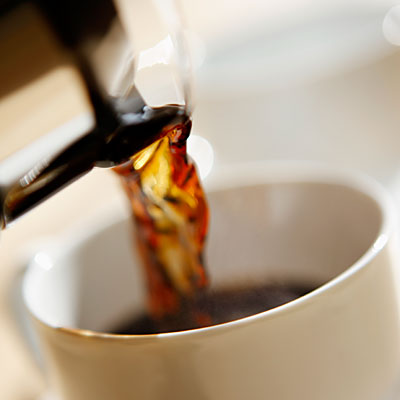Jurors hear Jackson doctor detailing treatments
Prosecution witness Sade Anding testifies during Dr. Conrad Murray's trial in the death of pop star Michael Jackson in Los Angeles, Tuesday, Oct. 4, 2011. Dr. Conrad Murray has pleaded not guilty and faces four years in prison and the loss of his medical license if convicted of involuntary manslaughter in Michael Jackson's death. (AP Photo/Mario Anzuoni, Pool)
LOS ANGELES — Dr. Conrad Murray says in a police interview played for a jury that he spent months trying to help Michael Jackson with his insomnia, giving him nightly infusions of an anesthetic until realizing the singer was becoming addicted.
Given two days after the King of Pop died, Murray is heard in the more-than two hour recording describing his relationship with the star, the medications he gave him and the efforts to save his life.
Murray's account, in an interview played publicly for the first time Friday, was so detailed and graphic that Jackson's sister, Rebbie, arose and rushed from the courtroom during the description of the singer's death scene.
Murray sounded calm, speaking in a lightly accented voice. As he neared the end of his story, emotion crept in.
"I loved Mr. Jackson," he told the detectives. "He was my friend. He opened up to me in different ways. I wanted to help him ... I cared for him. I had no intention of hurting him. I did not want him to fail."
He added, "I realized Michael Jackson had a dependency and I was trying to wean him off it."
The June 27, 2009, interview outside a noisy hotel ballroom gave police their first hint that Jackson's death was not from natural causes and that he had been given the powerful anesthetic propofol in an effort to cure his extreme insomnia.
"He's not able to sleep naturally," Murray told the detectives early in the interview.
Prosecutors contend that Murray was reckless by giving Jackson propofol outside a hospital setting and without proper monitoring equipment. They claim he gave the singer a lethal dose of the drug and other sedatives on the day Jackson died.
Defense attorneys say Jackson gave himself the lethal dose after Murray left the room. Murray has pleaded not guilty to involuntary manslaughter. If convicted, he could face up to four years behind bars and the loss of his medical license.
Jurors got about two-thirds of the way through the interview and will hear the remainder of the interview — and some of its most emotional moments — when the trial resumes on Tuesday.
According to a transcript released Friday, detectives asked Murray about his actions at the hospital after Jackson was declared dead, which led the doctor to describe telling the singer's mother and children that the singer had died.
Paris Jackson, the doctor said, was worried about being an orphan and expressed questions about why her father was dead.
"'Dr. Murray, you said you save a lot of patients, you know, you save people with heart attacks and you couldn't save my dad,'" Murray told the detectives Paris Jackson, then 11-years-old, said.
"'I know you tried your best, but I'm really sad," he continued, recounting her words. "'I will wake up in the morning, and I won't be able to see my daddy.'"
Murray's account disclosed a long history of Jackson's reliance on propofol.
Jackson told him he had received the drug from doctors in Germany and then from a Las Vegas physician, Dr. David Adams, who came to Murray's office and put Jackson to sleep for hours with the anesthetic. Adams is slated to testify later in the trial.
Adams' lawyer, Liborius Agwara, previously said Adams administered propofol to Jackson four times in 2008 to assist a dental surgeon.
Murray sat next to his lawyers as the tape played in the hushed courtroom. The only sound came from jurors turning pages of the 125-page transcripts given to them.
The doctor's story, interrupted infrequently by detectives' questions, was probably his substitute for testifying in the two-week old trial. It offered him the chance to describe his treatment of Jackson without cross-examination.
The interview made clear that detectives knew nothing about propofol before Murray mentioned Jackson's dependence on it. When Murray said that Jackson had demanded "his milk," his nickname for the drug, Detective Scott Smith asked, "Hot milk?"
No, the doctor said. Murray then described the anesthetic.
Jackson remained awake for hours after returning home around 1 a.m. on June 25, 2009, after rehearsals. "It was 4 o'clock in the morning, and then he complained," Murray said. "'I've got to sleep Dr. Conrad. I have these rehearsals to perform.'"
Jackson threatened to cancel that day's rehearsal, so Murray gave him some more lorazepam.
Over the course of the interview, Murray told police that other doctors had given the anesthetic before. Defense attorney Ed Chernoff told the detectives that Jackson was familiar with how the drug was administered through an IV and certain dosages.
Murray said Jackson actually asked him if he could "push it" through the IV himself and said he had done it before.
The doctor said he did not allow Jackson to do it.
At times during later portions of the interview that will be played Tuesday, Murray expresses his frustration that he didn't know what other doctors were giving Jackson.
But by the end of the interview, it becomes clear that Murray and his attorney sat down with detectives because they thought they had already found three bags filled with medical equipment, syringes and propofol bottles in Jackson's closet. Detectives wouldn't find the items until two days after the interview with Murray.
Murray told the detectives he always put the medications and equipment he used on Jackson away "because he wanted me not to have anything hanging around."
Smith then asked, "Where's your bag where those syringes would be now?"
"Oh, really?" Chernoff replied, according to the transcript.
"I don't have them," Murray replied, before telling the detectives exactly where to find the bags.
During the interview, Murray also told detectives how he took all possible precautions — keeping oxygen and a pulse monitoring machine nearby — and constantly warned Jackson that using propofol was an artificial way to sleep.
Murray said Jackson told him before he agreed to be his personal physician that he might need help. The physician said Jackson told him that he expected to sleep for 15 to 18 hours at a time.
Jackson had battled insomnia before he came to Murray. Repeatedly, Murray said, Jackson talked of cancelling his landmark "This Is It" comeback concert in London if he could not sleep.
"He said he would not satisfy his fans if he was not rested," Murray said. "There was a lot of pressure."
In his account of Jackson's final hours, Murray told of how he infused Jackson with lorazepam and another drug, Versed, during a 10-hour struggle to get the singer to sleep. At one point, he said, he checked to make sure the sedatives weren't leaking out of the IV bag.
"Where was this medicine going? Why was this man not responding?" Murray asked.
When Jackson stopped breathing, Murray added flumazenil, a drug designed to reverse the effects of the two drugs. There is no antidote for propofol.
In the interview, Murray acknowledged that he had left Jackson's side to go to the bathroom "for two minutes." He never mentioned the series of phone calls he made that were later detected on his cell phone records.
Murray recounted how the singer's assistant sought him out in early 2009 to accompany Jackson on his upcoming series of comeback shows. Then he got a call from Jackson, "telling me how elated he was that I was going to join the trip," Murray said.
The doctor said there was no commitment yet, but indicated how impressed he was about the request.
"Michael Jackson asked me to be on his team," Murray said. "I was talking to Michael Jackson himself."









